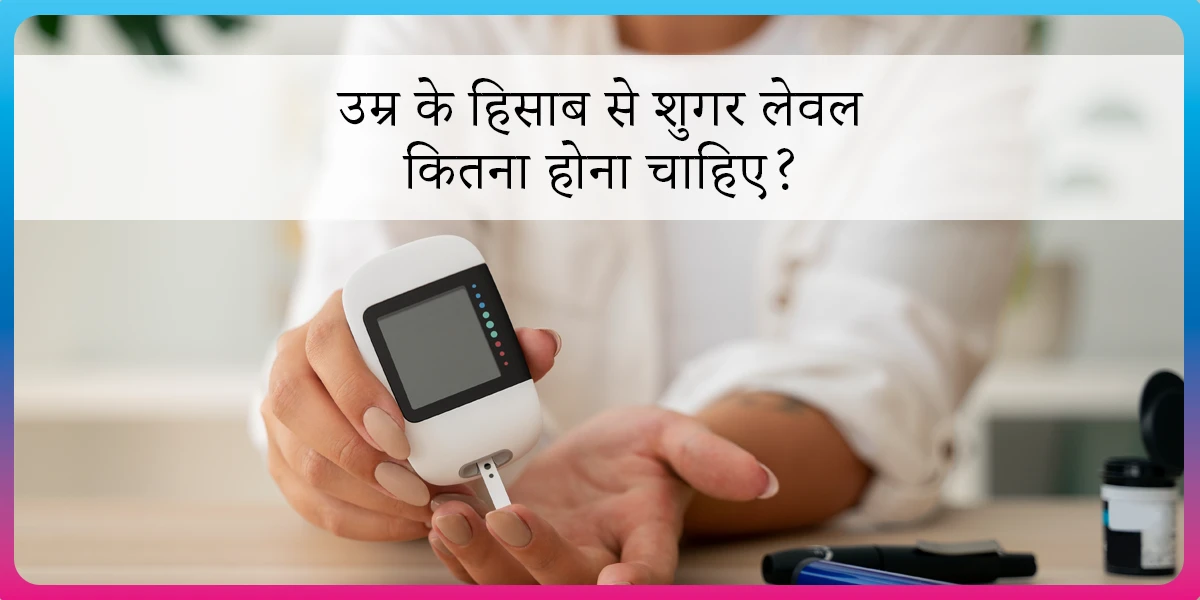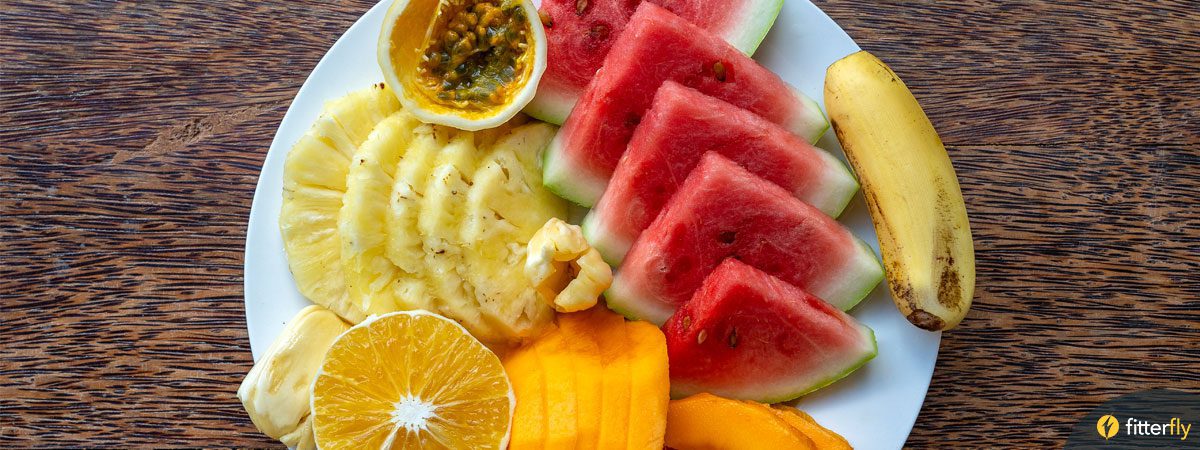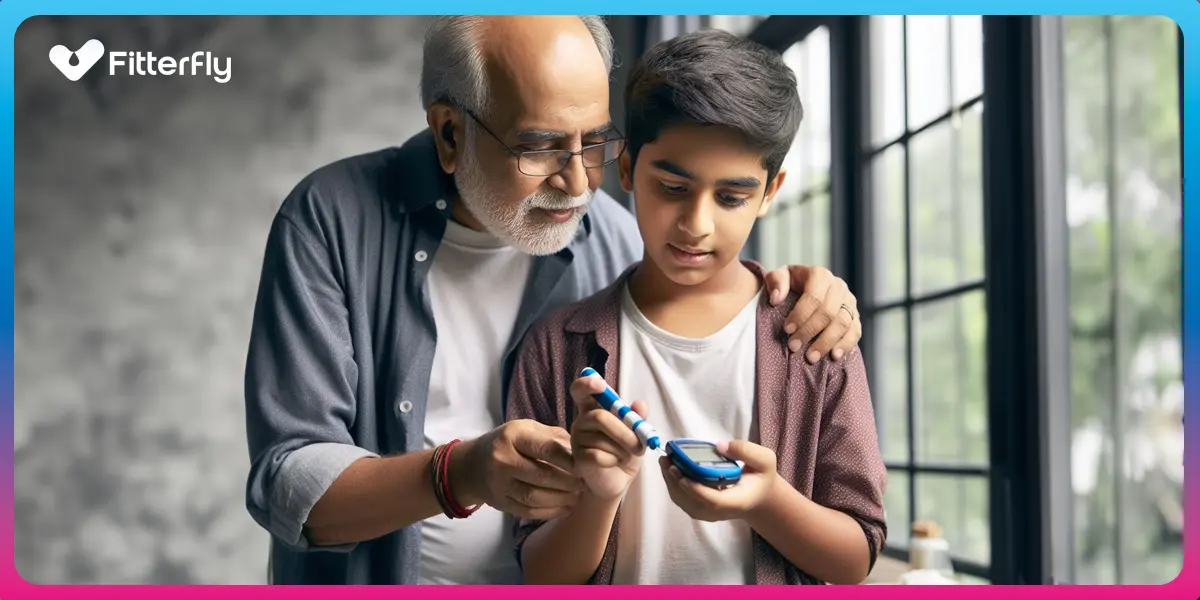Does Eating Sugar Cause Diabetes?

“Meetha khana band kar do, nahi to diabetes ho jyega.” Haven’t we all heard this at some point in time? Not just family members but even from strangers! But is there any truth to it?
In this blog, we will talk about a very informative and common topic: can eating sugar cause diabetes.
Sugar Consumption and Diabetes: What’s the Deal?
Before jumping to the answer, let’s talk about how we actually consume sugar in our day-to-day lives. Sugar and diabetes risk is a significant concern, especially considering how sugar is a big part of what we eat and drink every day.
During festivals, we enjoy mithai like ladoos, barfis, kheer, peda, and many more, all made with sugar.
Even on regular days, sugar is everywhere. Whether you’re having a cup of tea, coffee, a soft drink, or a glass of sharbat or lassi, sugar is one of the main ingredients that make these beverages taste the way they do!
When you’re cooking at home, especially if you’re making desserts, cakes, or mithai like gulab jamun or halwa, sugar is added. It’s hard to imagine these sweets without it. Sugar isn’t just something we use occasionally; it’s something we consume daily in various forms.
But with all this sugar in our diet, the big question is: Does it cause diabetes, especially since it is such a common part of our everyday lives?
To understand this, you need first to know what causes diabetes.
To know your chances of Diabetes reversal, take the Diabetes Reversal TestDiabetes Reversal
Calculator
What is Diabetes?
Diabetes is a condition where your body either doesn’t produce enough insulin or can’t effectively use the insulin it does produce. Insulin is a hormone that helps your body manage blood sugar levels.
Primarily, there are two types of diabetes: Type 1 and Type 2, each with its own distinct causes and implications.
What are the Key Causes of Diabetes?
While sugar consumption is often blamed, the reality is more complex.
- Type 1 diabetes is a condition where the exact cause is unknown; it could be autoimmune or genetic. It is not caused by diet or lifestyle choices.
- Type 2 diabetes, on the other hand, is primarily a lifestyle disease, often caused by factors like being overweight, leading a sedentary lifestyle, and consuming too many calories, particularly from sugary foods and drinks.
Debunking the BIGGEST Myth: Does Eating Sugar Cause Diabetes?
So, does eating sugar directly cause diabetes?
The answer is NO. Eating sugar or sweet foods and beverages alone doesn’t cause diabetes.
However, consuming excessive amounts of sugar or carbohydrates, such as sugary drinks and foods, can lead to weight gain, especially around the abdomen. This can result in insulin resistance, which is one of the reasons for the onset of Type 2 Diabetes.
The Role of Sugary Drinks, Processed Foods, Bakery Items, & Mithais: How It Affects Your Body?
Sugary drinks like soda, cola, diet colas, juices, milkshakes, sharbat, and bakery and processed foods like cupcakes, sweet buns, candies, chocolates, lollipops, donuts, waffles, and all types of Indian mithais (even homemade ones with gud, honey, dates, misri, khand, or condensed milk), are low in fiber and protein but high in calories.
Also, they don’t keep you full for long, leading to frequent overeating of more junk food.
Over time, this can contribute to weight gain, which is where complications can arise. Excess weight makes it harder for your body to use insulin properly, potentially leading to Type 2 diabetes. So, how can you protect yourself from this risk?
Fitterfly – Portion Control Tips & Hacks
What are the Preventive Strategies and Recommendations?
To reduce the risk of diabetes, focusing on the role of diet in diabetes management is crucial. This goes beyond just cutting back on sugar; it’s about making choices that promote overall well-being.
1. Benefits of Quitting Sugar and Sugary Products
When you reduce or stop eating sugar, your body experiences positive changes. Your energy levels stay more stable throughout the day because you’re avoiding the blood sugar spikes that sugar can cause.
Over time, your taste buds adjust, and you might not crave super-sweet foods as much. Plus, eating less sugar can help you maintain a healthy weight, which is crucial for reducing the risk of Type 2 diabetes.
2. How the Body Changes When You Do Not Eat Sugar
Reducing sugar intake can have many health benefits. It can enhance your body’s ability to manage blood sugar levels by improving insulin sensitivity.
You might also experience better digestion, clearer skin, and increased mental clarity. Over time, consuming less sugar can help decrease your risk of chronic conditions such as diabetes, obesity, hypertension, and heart disease.
3. Alternatives for Managing Sugar Cravings
Managing sugar cravings is all about finding balance and making smart choices:
3.1 Limit Cheat Days
Cheat days are often overrated. It’s OK to have it once in a while, but try to keep them rare. This way, you’ll stay on track with your overall health goals. Just remember to enjoy your treats in moderation.
3.2 Portion Control and Moderation
Instead of cutting out sweets entirely, focus on portion control. Enjoy a small piece of mithai or just a few bites of jalebi instead of the whole serving. This way, you can satisfy your sweet tooth without going overindulging.
3.3 Opt for Natural Sweeteners and Healthier Alternatives
If you need to sweeten your foods, consider using natural alternatives like stevia, which do not cause significant sugar spikes. However, it’s important to be mindful of the portions and use this sweetener in moderation.
How We At Fitterfly Can Help You?
Eating sugar alone doesn’t cause diabetes, but consuming too much of it, especially in the form of sugary drinks, mithais, bakery items, and processed foods, can lead to weight gain, which increases your risk of Type 2 diabetes. Type 1 diabetes, on the other hand, is an autoimmune condition that isn’t linked to sugar intake.
The best way to protect yourself is by enjoying a balanced diet and leading a healthy lifestyle. So, the next time you reach for that jalebi or gulab jamun, remember that moderation is key!
At Fitterfly, we understand how difficult it can be to resist these sweet temptations. They are woven into our culture and celebrations. But we believe you can still enjoy the foods you love while keeping your health on track.
Our programs are designed to help you make informed choices so you can indulge in your favorite treats without compromising your health goals. Our Nutrition Coaches, Fitness Coaches, and Success (Mental Wellness) Coaches work together to create personalized plans that suit your lifestyle, helping you find the right balance between enjoyment, physical fitness, and mental well-being.
Take the first step towards a healthier you by giving us a missed call at 08068507599. One of our program advisors will reach out to guide you on your journey to better health!
Reduced HbA1c by HALF in 6 months


6.6%
Happy members
EMI
Guarantee
4.8/5
Diabetes Prime Program
This blog provides general information for educational and informational purposes only and shouldn't be seen as professional advice.
Frequently Asked Questions
How much sugar can lead to diabetes?
There isn’t a specific amount of sugar that directly leads to diabetes. However, consistently high sugar consumption can contribute to weight gain, increasing the risk of type 2 diabetes.
Is sugar worse than other carbohydrates for diabetes?
Sugar and refined carbohydrates like maida can both raise blood sugar levels. Therefore, it’s important to manage its intake, especially if you have diabetes.
Can I eat sugar if I have diabetes?
It's best to avoid sugar if you have diabetes, as it can cause spikes in your blood sugar levels. You should also refrain from using jaggery, dates, honey, khand, and misri as they can have similar effects. Instead, focus on a balanced diet that includes low-glycemic index foods such as whole grains (like millets), legumes (like daal and pulses), non-starchy vegetables (like spinach, bhindi, and cauliflower), and fruits like apples, guava, and jamun. These foods help keep your blood sugar levels stable. Monitoring your overall carbohydrate intake is crucial to managing your diabetes effectively.
What are the symptoms of diabetes caused by sugar?
Diabetes isn’t directly caused by sugar. Usually, diabetes does not give any symptoms unless blood sugars are very, very high. However, symptoms of diabetes, in general, include increased thirst, frequent urination, fatigue, and blurred vision.
Is fruit sugar bad for diabetes?
Natural sugars in fruits are generally healthier than added sugars, as fruits provide fiber, vitamins, and minerals. However, it’s still important to monitor fruit portions to avoid spikes in blood sugar.
Does quitting sugar prevent diabetes?
Quitting added sugars can help reduce your risk of type 2 diabetes by promoting weight loss and reducing insulin resistance. However, it’s not guaranteed, as other factors like genetics and overall lifestyle also play a role.
Why is sugar considered bad for people with diabetes?
For people with diabetes, managing blood sugar levels is crucial. Consuming foods high in sugar can cause rapid spikes in blood sugar, making diabetes more difficult to control. Additionally, sugary foods like mithai, chocolates, beverages, and ice cream are often calorie-dense and lack essential nutrients. This can lead to weight gain, further complicating diabetes management. That’s why it’s important to limit added sugars and focus on a balanced diet that provides the nutrients that your body needs without the extra calories from sugar.




















